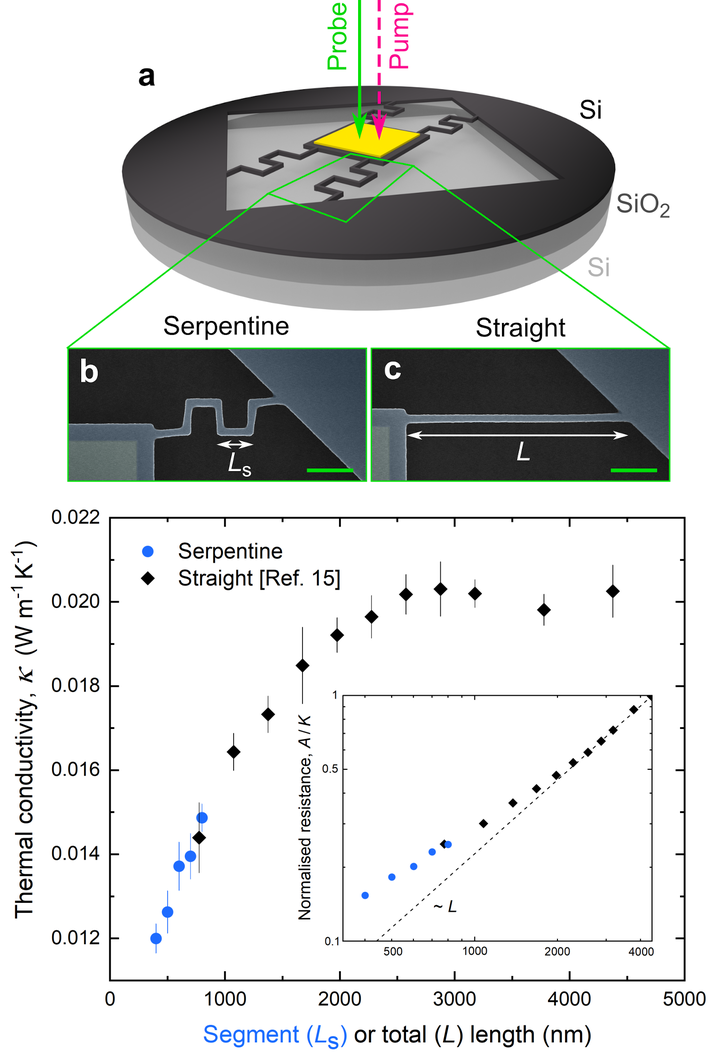
Abstract
Ballistic heat conduction in semiconductors is a remarkable but controversial nanoscale phenomenon, which implies that nanostructures can conduct thermal energy without dissipation. Here, we experimentally probed ballistic thermal transport at distances of 400–800 nm and temperatures of 4–250 K. Measuring thermal properties of straight and serpentine silicon nanowires, we found that at 4 K heat conduction is quasi-ballistic with stronger ballisticity at shorter length scales. As we increased the temperature, quasi-ballistic heat conduction weakened and gradually turned into diffusive regime at temperatures above 150 K. Our Monte Carlo simulations illustrate how this transition is driven by different scattering processes and linked to the surface roughness and the temperature. These results demonstrate the length and temperature limits of quasi-ballistic heat conduction in silicon nanostructures, knowledge of which is essential for thermal management in microelectronics.
Nanoscale 11, 13407 (2019)